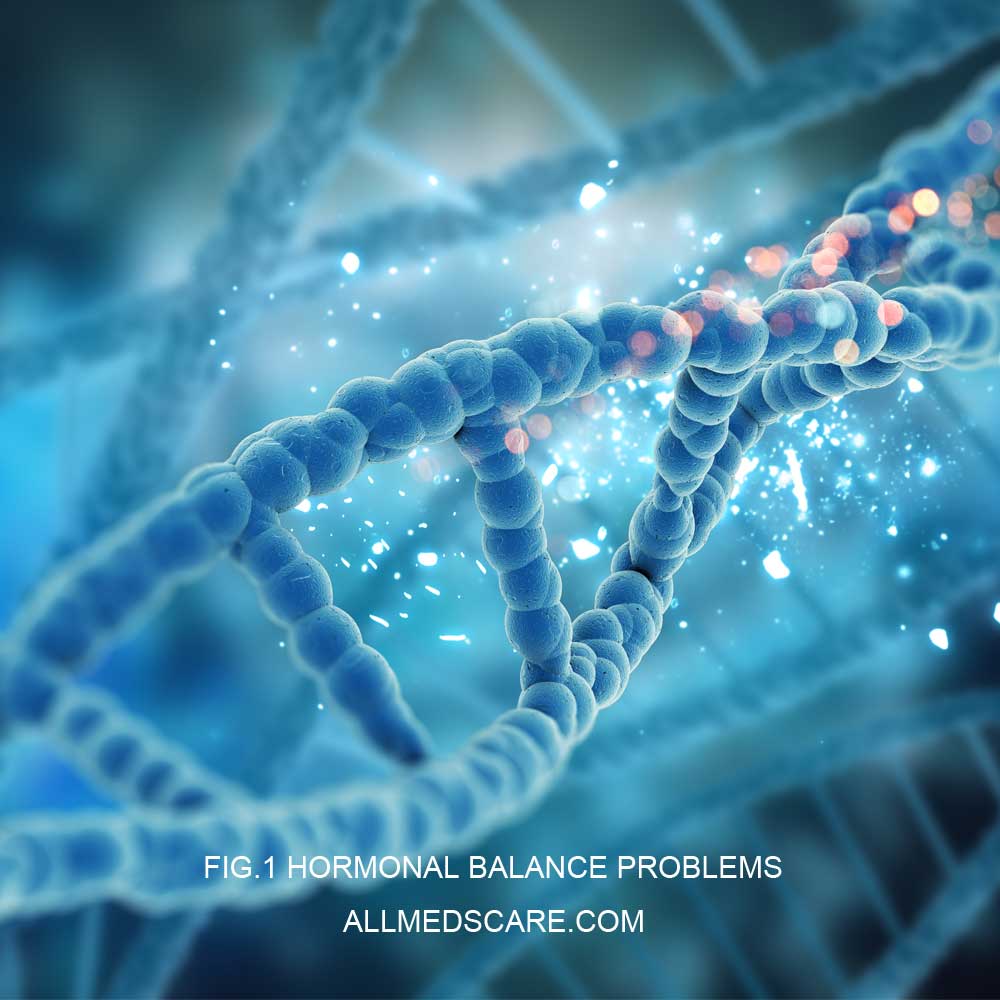
An Effective Solution to Hormonal Balance Problems
Hormonal balance problems occur due to stress, bad dietary and lifestyle choices, certain medications, and medical disorders. The best way to manage these problems is to take control of your health through natural treatments like herbal remedies, dietary changes, or exercise. Non-FDA-approved medications generally treat Hormonal Imbalance. Examples are nutraceuticals, supplements, and bio-identical hormone therapy. FDA-approved treatments such as HRT (hormone replacement therapy), SERMs (selective estrogen receptor modulators), or antidepressants also treat Hormonal imbalance.
By practicing proper sleep hygiene and engaging in regular exercise, one can help avoid future imbalances from occurring.

The Symptoms
PMS, mood swings, and weight gain are typical symptoms of hormonal imbalance. For example, abnormalities in the hormones cortisol, leptin, and insulin can cause weight gain. Changes in estrogen or progesterone levels can also cause mood swings. During the luteal phase of the menstrual cycle; an increase of hormones like prolactin, is sometimes linked to premenstrual syndrome (PMS).
Lack of proper sleep is also a part of hormonal imbalance. Along with all these symptoms, mental health issues like anxiety and depression can also be related to hormone imbalance.
Natural Ways To Treat Hormonal Balance Problems
Natural herbal treatments are a popular way to help restore hormonal balance. The symptoms of hormonal imbalance have long been treated with herbs like red clover, maca root, chasteberry, and black cohosh in traditional medicine. The ability of red clover to control estrogen levels makes it particularly useful for easing menopausal symptoms like night sweats and hot flashes. If taken frequently, the Maca root also reduces PMS symptoms and enhance fertility. While black cohosh reduces inflammation related to menopause and endometriosis, chasteberry is another herb that helps in restoring normal progesterone production.
Dietary changes can also be beneficial to restore the body’s delicate hormonal balance. Cutting down on processed foods, limiting caffeine intake, avoiding alcohol, and eating fiber-rich fruits and vegetables are all important steps toward achieving healthy hormone levels.
Additionally, it’s important to regularly practice yoga or meditation to reduce stress because excessive cortisol levels brought on by long-term stress can impair the production of normal hormones and cause imbalances in other hormones like testosterone or estrogen.
Finally, exercise is a great approach to support hormone balance since it raises endorphin levels, which function as a natural sedative to calm anxiety brought on by hormonal fluctuations throughout the month or through life transitions like pregnancy or menopause.
Non-FDA Approved Products
Treatment for hormonal abnormalities with synthetic hormones that are molecularly identical to “Bio-Identical Hormone Therapy(produced within the body)”. The substances are administered in the form of pills, patches, or creams and can be customized accordingly.
Bio-identical hormone treatment is successful at restoring the balance of estrogen, progesterone, testosterone, thyroid, and other hormones as well as lowering menopause symptoms including hot flashes, night sweats, anxiety, and depression,
Other non-FDA-approved products used to treat hormonal imbalances are supplements and nutraceuticals. Numerous supplements supply essential minerals like magnesium, which are crucial in controlling cortisol levels, while others provide antioxidants like Vitamin E, which reduces inflammation in the body and boosts hormone production. Nutraceuticals are also effective treatment for some disorders related to hormone imbalances, such as premenstrual syndrome (PMS) when taken regularly over time.
Cannabinoids from either hemp or cannabis plants have recently gained popularity as therapies for a variety of health conditions, including troubles with hormonal balance because of their capacity to interact with cannabinoid receptors found throughout the body’s endocannabinoid system (ECS). Tetrahydrocannabinol (THC) is another substance, a different cannabinoid believed to act similarly on the central nervous system and reproductive organs. Cannabidiol (CBD) is one type of cannabinoid and known for its anti-inflammatory properties. Tetrahydrocannabinol (THC) has effective anti-inflammatory properties.
FDA Approved Solutions
Hormone imbalances can be successfully treated with FDA-approved treatments like HRT (hormone replacement therapy), SERMs (selective estrogen receptor modulators) and antidepressants.
Hormone replacement therapy (HRT) is a method of treating disorders where the body no longer produces enough hormones, frequently as a result of menopause or other illnesses including hypogonadism. Depending on each patient’s needs; estrogen, progesterone, and/or testosterone can be administered; either alone or in combination.
To restore the balance between estrogens, progestogens, and other hormones involved in processes like reproductive health, bone density maintenance, and cardiovascular function, SERMs act on the estrogen receptors in the body, either blocking their activity or stimulating it depending on where they are located within different tissues.
Common SERM drugs such as Tamoxifen citrate and raloxifene hydrochloride are important. Frequently prescribed for the treatment of breast cancer but can also help with other hormone-related problems like hot flashes and night sweats connected to menopause.
Antidepressants and antianxiety medications can also relieve symptoms caused by hormonal imbalances. Selective serotonin reuptake inhibitors (SSRIs) treats depression. They change the levels of specific neurotransmitters involved in mood regulation. Benzodiazepines, such as Xanax or Valium, are more specifically treat anxiety disorders. When natural remedies for mental health concerns linked to hormone imbalance are unsuccessful. Medical supervision is important for consuming these medications as they can have negative side effects if misused.
Preventative Measures to reduce Hormonal balance problems
Sleep hygiene is beneficial for a healthy hormone balance and the avoidance of further imbalances from occurring.
Reducing stress through relaxation techniques like deep breathing exercises or guided meditation can also be advantageous for keeping hormonal balance. Chronic stress increases cortisol production, which can interfere with the normal patterns of other hormones like testosterone or estrogen,
Regular exercise is another key element when it comes to restoring hormone balance. Exercise promotes endorphin production, which lowers anxiety brought on by variations in hormone levels while also enhancing cardiovascular health.
Incorporating healthy eating habits into one’s lifestyle is also essential. Consuming more nutrient-dense foods high in fiber, vitamins, and minerals while limiting processed foods and sugar intake helps support proper digestion which encourages optimal hormonal function.






